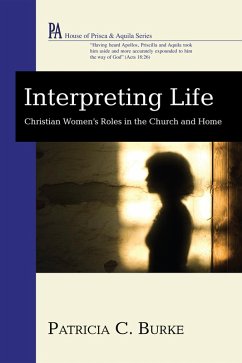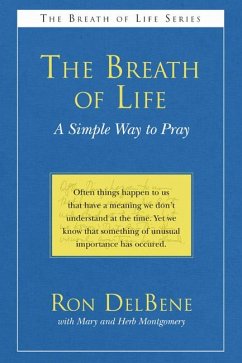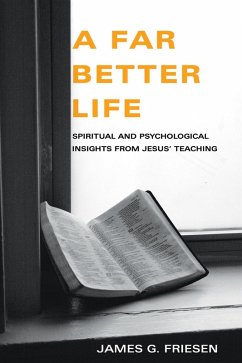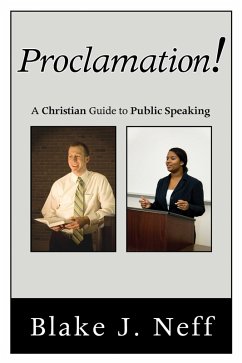Interpreting Life depicts one Christian woman's struggle to determine her place in the home and church as the traditional roles of the 1950s gave way to the chaos created by the social movements of the 1960s and 1970s. Burke's lengthy journey brought her from a state of confusion to a conscious awareness of the effects of her cohort, conservative religious beliefs, and close relationships on her personal and spiritual development. From childhood, she worshipped with a church where submission scriptures in the New Testament were taken literally and women were not allowed to participate in any public leadership roles such as leading prayers and songs, teaching adults, or preaching. As society changed and women gradually acquired leadership roles in other organizations, these church practices became more stifling, preventing many conservative women from using their God-given talents. Because of her marriage to a minister, where she felt her family was living in a glass house, it became exceedingly frustrating to adhere to traditional religious values. Throughout this process, their marriage relationship was repeatedly challenged, but their commitment to each other and the church helped them resolve their differences and work together to reinterpret women's roles in the church. Journal writing was the technique used to make sense of the contradictions and internal conflict experienced as this Christian woman attempted to remain faithful to her religious beliefs and yet develop to her full potential. Excerpts from over thirty years of writing reveals the strategies Burke employed to remain positive and productive as family and church priorities took precedent over her own dreams.
Hinweis: Dieser Artikel kann nur an eine deutsche Lieferadresse ausgeliefert werden.
Dieser Download kann aus rechtlichen Gründen nur mit Rechnungsadresse in A, D ausgeliefert werden.
Hinweis: Dieser Artikel kann nur an eine deutsche Lieferadresse ausgeliefert werden.









